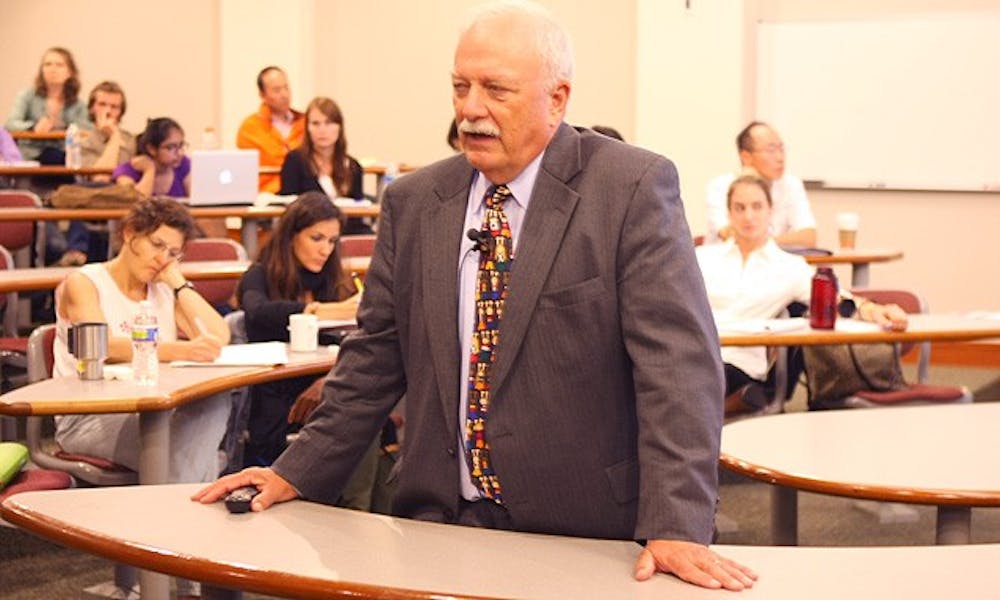Charles MacCormack said nonprofits are in desperate need of “orchestra leaders”: people with technical backgrounds and entrepreneurial instincts that can handle global problems in an increasingly complex world.
MacCormack, chief executive officer for Save the Children, addressed nonprofit organizations in an era in which he said development has become more popular among philanthropists, global corporations, celebrities and the general public. His talk, titled “A New Era of Development Assistance: Problems and Opportunities,” was sponsored by the Duke Center for International Development’s “Rethinking Development Policy” lecture series.
“We need to find people who understand policy, technology, global framework and strategy, who have all the professional skills and can schmooze with celebrities and go on the television programs and meet with billionaires and do [all those things],” MacCormack said. “It seems in parts of the corporate world that does happen, but in the world of social change, [those people] seem less common.”
Katie Messick, a masters candidate at the DCID, said she hopes to be a leader in the field. Last summer she worked as an intern for Save the Children, an international organization with offices in 120 countries.
“There is hope even though there are challenges that people need to think about and overcome in the role of development,” Messick said.
Corinne Krupp, associate professor of the practice of public policy, said MacCormack’s speech was encouraging to those interested in starting careers in international development.
“I think he captured, from a macro perspective, what some of the biggest challenges are: all this money, all these people working to solve problems, how difficult it is to make progress on it—this chaos,” Krupp said. “I think he gave hope to people who want to work in this field—that there’s so much work to do and so many people needed.”
In addition to calling for leadership, MacCormack said non-governmental organizations should narrow their goals in order to be effectual with limited funds and should find ways to build coalitions. He added that it can take 10 to 15 years and millions of dollars to produce change in a major area.
There needs to be some sort of organizing mechanism to harness the disparate decentralized chaotic activity of NGOs, he said.
“What happens to the $90 billion a year devoted to private assistance?” he said. “Nothing much. It just kind of goes on and in general it isn’t helping solve problems because it doesn’t get aggregated and leveraged.”
NGOs have difficulty adapting to global developments and changing technology, but MacCormack said he has hope that new leaders will meet the challenges.
“This group will be the future leaders of global development,” he told the audience. “Others helped me when I was beginning my career and I certainly feel committed to doing the same, and so it’s a real multiplier effect for me to pass on what I have learned.”
Get The Chronicle straight to your inbox
Sign up for our weekly newsletter. Cancel at any time.

